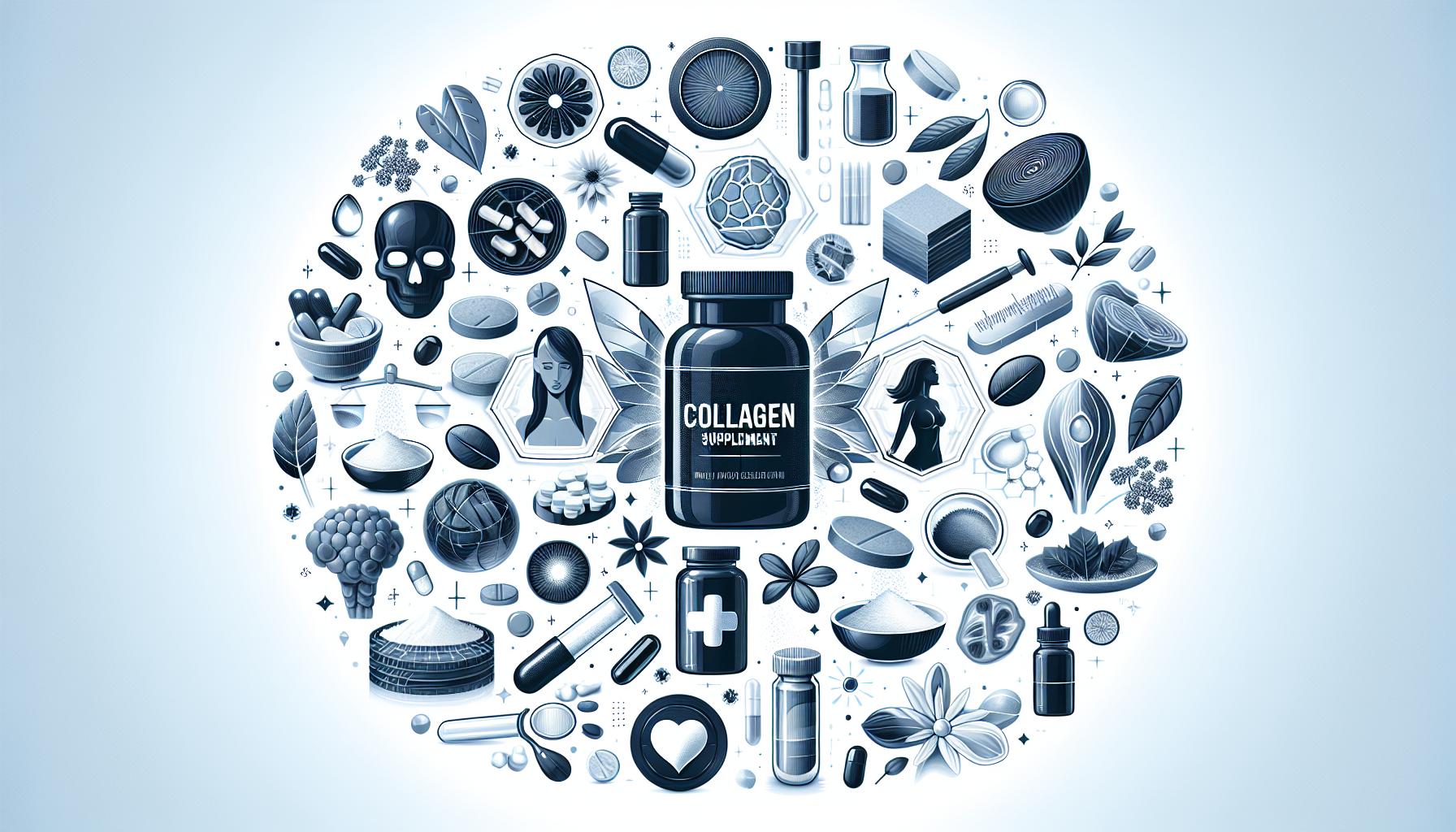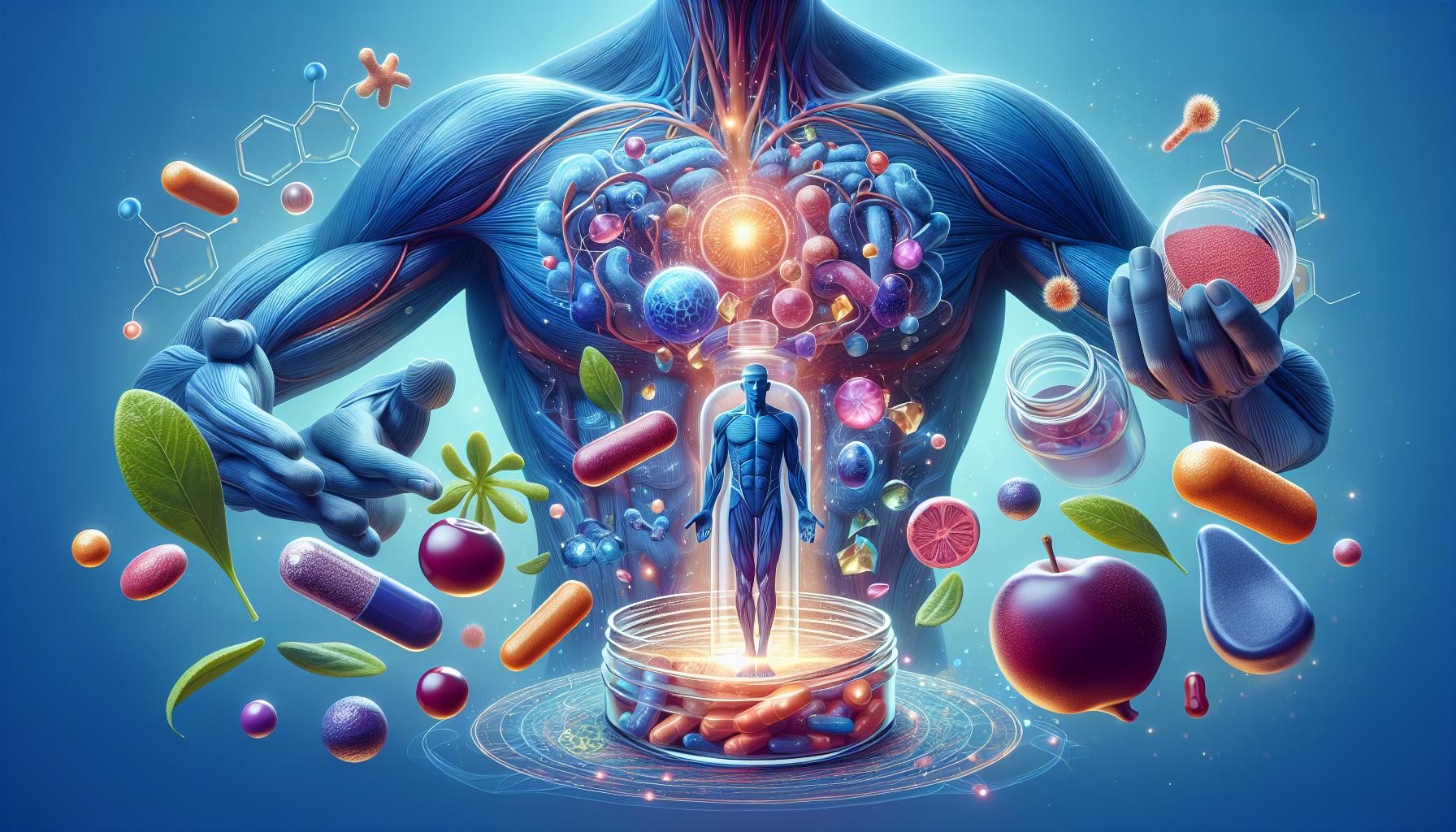
Introduction
Ever wondered, “what does a collagen supplement do?” Well, we’ll tackle that head-on in this comprehensive read. In simple terms, collagen supplements serve as a replenishing source of this critical protein in our bodies. And why is that so important? It’s because collagen is a main component of our skin, bones, and connective tissues. In this article, we’ll elaborate on these points and delve deeper into the surprising benefits of collagen supplementation. So, buckle in and prepare for an informative, engaging journey!
What exactly is collagen?
Collagen, often termed as the ‘glue’ that holds our body together, is the most abundant protein in our bodies. Two types consistently pop up in discussions about collagen—Type I and Type II collagen. The former is the star player in our skin, teeth, and bones, while the latter is essential for our joints and cartilage.
A deeper dive into collagen
This magical protein doesn’t just exist as one homogenous entity; it comes in at least 16 different types. Each type brings unique characters to the party, ensuring our bodies remain healthy and functioning at optimal levels.
Decoding collagen supplements
Now, you’re probably thinking, “Well, if our bodies naturally produce collagen, why do we need supplements?” It’s a valid question. In our youth, our bodies are veritable collagen factories, pumping out this essential protein in abundant quantities. However, as age tiptoes in, our collagen reserves begin to dwindle. Enter collagen supplements, our secret weapon against this decline.
What’s in collagen supplements?
A typical collagen supplement is packed with hydrolyzed collagen or collagen peptides, broken-down collagen that’s easier for our bodies to absorb. Moreover, these supplements often pair the protein with vitamins and minerals to create a powerhouse of health benefits.
Surprising benefits of collagen supplements
Beyond their main function of replenishing our body’s collagen supply, these supplements also offer a plethora of surprising benefits. They may improve the health of our skin, hair, and nails, enhance joint mobility, and even support gut health.
A deeper look at specific benefits
For example, by bolstering our body’s collagen supply, these supplements can help restore skin elasticity, reducing the visible signs of aging such as wrinkles and fine lines. Meanwhile, they may also provide relief from joint pain and enhance overall mobility.
Deciding whether collagen supplements are right for you
So, you’re considering jumping on the collagen bandwagon. Great! However, it’s critical to remember that while supplements can be beneficial, they’re not a cure-all. It’s equally important to maintain a healthy diet and lifestyle to support your body’s natural collagen production.
Collagen supplements –-go or no-go?
While there’s no one-size-fits-all answer, generally, collagen supplements are considered safe for most people. However, always consult with a healthcare professional before starting any new supplement regimen.
Conclusion
To put it simply, collagen supplements can be an excellent way to counteract our natural age-related decline in collagen production. They can provide a myriad of benefits including improved skin health, joint relief, and more. However, like with any other health decision, proper research and consultation with a healthcare professional is key. Remember, supplements are a complement, not a replacement, for a healthy lifestyle.
Frequently Asked Questions
1. What are collagen supplements made from?
Collagen supplements are typically made from animal sources like bovine or marine collagen.
2. Are there plant-based collagen supplements?
Yes, there are vegan collagen supplements made from genetically modified yeast and bacteria.
3. Are there any potential side effects of collagen supplements?
While generally considered safe, some people may experience side effects like bloating, heartburn, or allergic reactions.
4. Can collagen supplements help with joint pain?
Yes, collagen supplements may help reduce joint pain and improve symptoms of arthritis.
5. Are there natural ways to increase collagen production?
Yes, having a diet high in vegetables, fruits, lean proteins, and whole grains can help boost the body’s natural collagen production.


